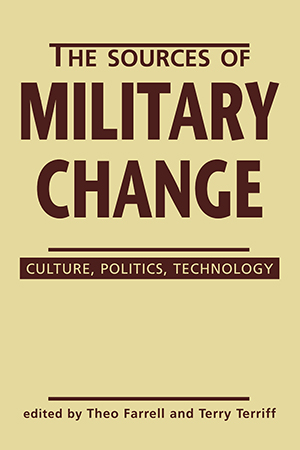
- 2002/301 pages
The Sources of Military Change:
Culture, Politics, Technology
Hardcover: $65.00
ISBN: 978-1-55587-975-4
In varying circumstances, military organizations around the world are undergoing major restructuring. This book explores why, and how, militaries change.
The authors focus on a complex of three influencing factors—cultural norms, politics, and new technology—offering a historical perspective of more than a century. Their analyses range from developing states to Russia, Britain, the U.S., and NATO. Throughout, they reveal the manifold interactions between state and military, and also within both, as primary driving forces of change.







